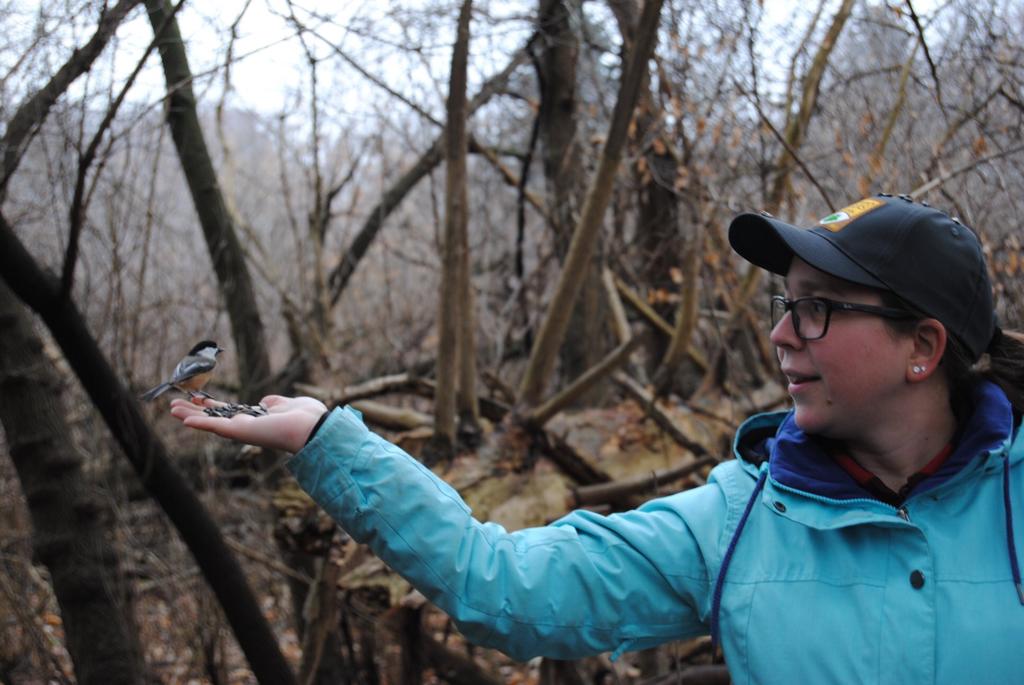Marissa Chase is a Conservation Interpreter for Credit Valley Conservation (CVC). She graduated with a B.A. in Geography and a B.Ed in 2016, and is currently working on her M.Sc in Geography.
Where do you work and what do you do?
My current title is a Conservation Interpreter with Credit Valley Conservation. Previous roles include Outdoor Educator and Education Naturally Teacher. My work is in outdoor education, but with the COVID-19 crisis we have had to adjust our model of education a bit, as everyone else has.
Prior to this, at Riverwood Conservancy I worked in an outdoor education program with K-8 and some 9-12, and it was really rewarding to work with kids some of whom have never spent any length of time outside. They don’t realize that there are these forests around. It was amazing to see them engage with science in a different way – to look at leaves and what they do, to look at salmon in a stream.
Tell us your work journey after the degree: what went well? What was challenging?
A lot of people I’ve encountered go to community college after university to get more hands-on credentials, whether it’s a Fish & Wildlife diploma from Fleming College, or a GIS diploma, or an Environmental Technician diploma. Because I had the concurrent education degrees, I was focused on working in outdoor education before I even finished my degree.
I started looking for part-time work in 2018 and got a job at Riverwood Conservancy in Mississauga, and worked there before moving to CVC.
How did you use what you learned? When did you feel like “I wish that they had taught me about this in university!”
I use both my geography degree and my education degree every day at work.
I do wish that there had been more hands-on learning, more field trip-based courses, field experiences.
Did you see value in the academic and theoretical learning though?
Yes. Academic learning is valuable too. It is important to know why we do some of the hands-on things we do, and to have the theoretical knowledge to apply. I still remember the land-rivers course in physical geography. It was highly technical, there was no hands-on aspect. But we learned about why there are dunes at the bottom of a channel, we learned about the geomorphology, the natural processes.
Thinking back to when you were in high school, what made you want to get into this? How does what you are doing match, and differ, from what you thought?
I actually went to an arts high school, but I wasn’t an arts kid. One of the teachers at my school was very passionate about geography and history – Paul van Zant, so we had all the geography courses! We had world issues, physical geography, we almost had Geographic Information Systems (GIS) but not enough students were interested.
I always knew I wanted to teach, but I assumed it would be in a classroom until I did it and realized that I wanted to teach in outdoor education.
Any other advice for people thinking of an undergrad environmental degree?
Take advantage of volunteer opportunities. I volunteered with CVC and there’s an incredible program called the Conservation Youth Corps. I entered York’s Undergraduate Research Fair and got to know some professors and their work that way. I worked at the library. There are so many places to work with an environmental degree – planning, waste management, science – but like any other field you have to work on your studies forever – keep going with your master’s or technical education or naturalist certification, and fill in things you are missing.
Also take advantage of whatever opportunities to have a community. For me, life at York got better in 4th year when I was spending hours and hours in the GIS lab with others like Aditi, you start seeing the same people and forming a community because you’re crying in the lab together.


